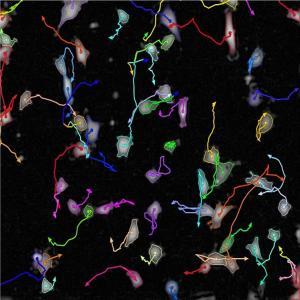Ribosomes and Cancer: What Protein-Making Machines Can Tell Us About Disease

In recent years, ribosomes—the molecular machines responsible for protein synthesis—have gained increasing attention not only for their central biological role but also for their emerging significance in cancer research. A growing number of studies have revealed that abnormalities in ribosome function and biogenesis (the process of making ribosomes) are closely linked to the development and progression of many types of cancer. This realization has led to a surge of interest in ribosomal proteomics, an advanced area of molecular biology aimed at understanding how ribosomes work and how they interact with other cellular components.
Ribosome and Cancer
Ribosomes are essential organelles found in all living cells. They function as the site where genetic instructions carried by messenger RNA (mRNA) are translated into proteins—molecules that carry out most of the work inside cells. In healthy cells, ribosome production is tightly regulated. However, in cancerous cells, this process often becomes dysregulated, leading to overproduction of ribosomes and increased protein synthesis that fuels rapid cell growth.
Certain types of cancer—such as prostate cancer, colorectal cancer, liver cancer, melanoma, and breast cancer—have been associated with this kind of ribosomal hyperactivation. In these cases, the abnormal behavior of ribosomes can contribute to uncontrolled cell division, resistance to apoptosis (programmed cell death), and increased tumor aggressiveness.
Investigating Ribosomes Through Proteomics
Ribosomal proteomics is a branch of study that focuses on analyzing the proteins that make up the ribosome or are associated with it. By examining these proteins, scientists can better understand how ribosomes contribute to disease mechanisms and how they might be targeted for therapeutic purposes.
To carry out such investigations, researchers now rely on an array of cutting-edge technologies. Mass spectrometry, for example, allows for precise identification and quantification of ribosome-associated proteins. This tool helps uncover subtle differences in protein composition that could explain why ribosomes behave differently in cancer cells compared to healthy ones.
In addition to mass spectrometry, other approaches such as microarray analysis and next-generation RNA sequencing (RNA-Seq) are used to study the transcriptome—the complete set of RNA transcripts associated with ribosomes. This integrated view of the ribosomal proteome and transcriptome provides a more complete picture of cellular behavior and disease pathology.
Developing Ribosomal Marker Antibodies
One of the most exciting advances in this field is the discovery that certain ribosomal proteins can serve as biomarkers or even therapeutic targets in cancer. These ribosomal markers can help identify tumors with abnormal protein synthesis activity or predict how aggressive a tumor might be.
To explore these possibilities, scientists are developing specialized antibodies that can detect ribosomal proteins with high specificity. These antibodies can be used in both research and clinical settings to investigate tumor biology or aid in diagnostic procedures. The development process involves extensive optimization to ensure accuracy and sensitivity, using technologies such as phage display and hybridoma screening.
Ribosome Separation and Extraction Techniques
Before any detailed analysis can begin, ribosomes must be carefully isolated from cells or tissues. This is a delicate process, requiring optimized protocols to preserve the integrity of these fragile complexes. Techniques such as sucrose gradient centrifugation are commonly employed to separate ribosomes from other cellular components.
Specialized methods like Ribosome Affinity Purification (RAP) are used to extract ribosomes along with their interacting proteins, while Translating Ribosome Affinity Purification (TRAP) allows for the isolation of ribosome-bound mRNAs from specific cell populations. These techniques are invaluable for studying how translation varies in different tissues, developmental stages, or disease states.
A Promising Path Forward
Ribosomal proteomics represents a promising frontier in the quest to understand cancer at its most fundamental level. By combining sophisticated analytical tools with advanced antibody development and precise extraction methods, researchers are steadily unraveling the complex relationship between ribosomes and disease. As knowledge in this field expands, it opens the door to more targeted and effective therapeutic strategies in oncology and beyond.
- Art
- Causes
- Crafts
- Dance
- Drinks
- Film
- Fitness
- Food
- Spellen
- Gardening
- Health
- Home
- Literature
- Music
- Networking
- Other
- Party
- Religion
- Shopping
- Sports
- Theater
- Wellness
